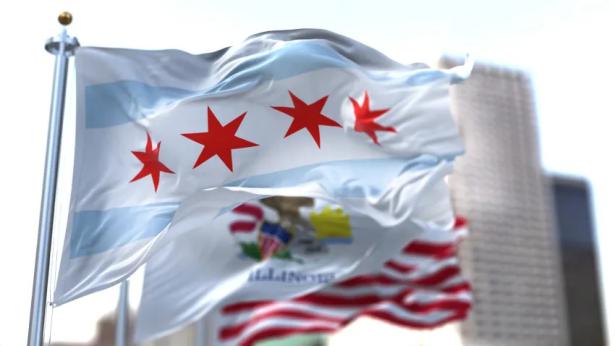Employees at Chicago businesses will soon be guaranteed twice as many days off as workers in the rest of Illinois, under an expanded paid leave policy approved by the City Council on Thursday.
Mayor Brandon Johnson landed his latest progressive victory a couple of days later than expected after a parliamentary maneuver by Council opponents delayed a vote originally set for Tuesday, but the measure’s support was scarcely in doubt despite vehement opposition in the city’s business community.
The Council voted 36-12 in favor of the ordinance that requires Chicago businesses to give their workers 10 days off per year beginning Jan. 1, including five sick days and five vacation days.
That goes beyond the statewide paid leave policy taking effect next year that requires businesses to provide five days of paid leave — and makes Chicago’s ordinance one of the most expansive measures in the nation.
The city will also require companies with 100 or more workers to pay out up to seven days of unused time when employees leave their jobs. There’s a two-year phase-in for companies with 51 to 100 employees to pay out departing workers for unused time, while companies with 50 or fewer employees will be exempt from the payouts.
Johnson called it “a step towards equity in the workplace” and “a values statement.”
“A values statement that says that here in Chicago, we believe that everyone deserves the opportunity to take care of themselves, their loved ones and to do it without the burden of financial instability,” the freshman mayor said during a celebratory news conference.
Johnson and his progressive Council allies originally pushed for city employers to provide 15 days off, but settled on 10 after arduous negotiations with business, retail and restaurant trade groups who remain deeply opposed to the costly mandate.
Asked about dire warnings from those opponents that the ordinance will end up passing cost increases on to consumers, Johnson responded: “What is the cost of workers not being able to show up every single day, and not have the protection of not just time off, but wages, benefits?”
“This is going to take some adjustment,” Johnson said, adding that was why Council members will later consider amendments put forth by Ald. Jason Ervin (28th) and Ald. Brendan Reilly (42nd). The Council tabled a motion to consider those changes, which would include giving employers a 30-day window to address an alleged violation before workers could file a lawsuit.
Ervin voted in favor of the ordinance, but Reilly — who on Tuesday wielded the parliamentary maneuver along with Ald. Brian Hopkins (2nd) to delay the vote — was a “no.”
Reilly said on the Council floor that he’s fielded “frantic phone calls” from entrepreneurs worried about a potential “jackpot of litigation.”
“The business community can only absorb so much at once,” Reilly said before the vote. “We’re really piling on the business community right now. … Well-intended ordinances can have really negative consequences.”
After the meeting, Brad Tietz of the Chicagoland Chamber of Commerce called it “the most complicated and expensive ordinance for paid leave in the country.”
“The important part here is the timing. Small businesses of every size have eight weeks to do this. It’s hard for us to see that happening,” he said.
Tietz’s chamber is part of a coalition of business groups also including the Illinois Hotel & Lodging Association and the Illinois Restaurant Association who said the ordinance “cemented Chicago’s status as a hostile place for employers of every size and sector to do business.”
Ald. Pat Dowell (3rd) said she was a reluctant “yes” as a result of concessions made at the behest of Black Caucus members concerned about the burden on small businesses. But she still held reservations.
“I want to work to ensure that employees get time off, but the ‘time off’ issue is nonexistent if we enact policies that force businesses to close,” Dowell said, later adding that she was confident “modifications” could be made down the line.
The paid leave measure puts another progressive trophy on the wall for Johnson less than six months after he took office.
Last month, he and his Council allies passed an ordinance that promises to phase out the subminimum wage for tipped workers by 2028.
And earlier this week, the Council advanced another key item on Johnson’s agenda by placing a referendum question on next March’s primary election ballot asking voters whether the city should raise the real estate transfer tax on high-end property sales to address homelessness.


Spread the word